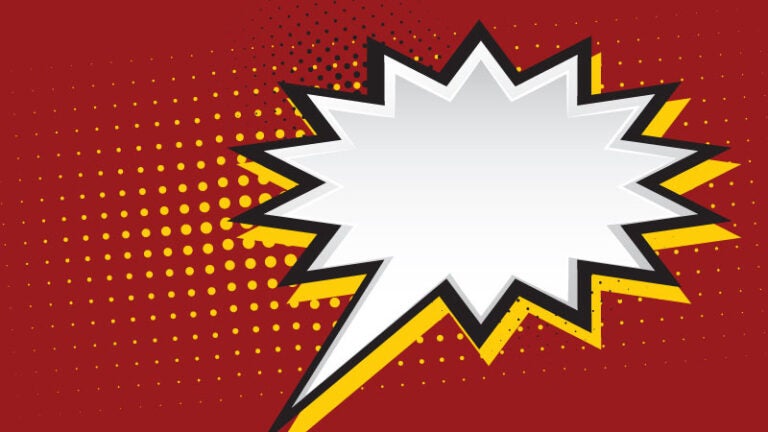
Americans’ tolerance for hate speech and racist rhetoric is declining
Focusing on the First Amendment, the American Civil Liberties Union (ACLU) went to court in 2017 to argue in favor of white nationalists’ right to rally in Charlottesville, Virginia. But in the tragic aftermath of the rally, which led to the death of a counter-demonstrator, the ACLU decided to modify its approach to free speech controversies.
A leaked internal memo signaled a change to the nonprofit’s criteria for choosing new cases. In addition to First Amendment principles, the ACLU said it would now consider whether advocating for free speech in certain circumstances may lead to results that are harmful to society.
This change to the ACLU’s approach shows how debates about hate speech have transformed Americans’ understanding of the right to free expression and its limits, argue Dennis Chong, professor of political science, and Morris Levy, assistant professor of political science, at USC Dornsife College of Letters, Arts and Sciences.
This is especially true with respect to restricting hate speech that stigmatizes or insults historically marginalized groups.
Chong and Levy present their arguments in a paper published in the journal Social Research. There they detail their research study showing that tolerance toward racist expression in the United States is declining, particularly among younger Americans, liberals, and the college-educated.
“For an increasing number of Americans, hostile, abusive or demeaning speech constitutes a distinct category of expression that is not entitled to First Amendment protection because it inflicts harm on its targets and undermines the value of equality,” Chong said.
The paper is the first in a series of Center Insights that will be forthcoming from the USC Dornsife Center for the Political Future. The center uses scholarly research, education and interaction with professional politicians to understand and narrow the political divide.
Changing trends in tolerance
To conduct their research, Chong and Levy analyzed 40 years of polling data from the National Opinion Research Center’s biennial General Social Survey (GSS). Since the 1970s, the GSS has asked a representative national sample of respondents whether freedom of expression should be extended to communists, atheists, supporters of military rule, (“militarists”), racists, and the LGBTQ community. By aggregating and averaging the answers, Chong and Levy were able to assess changing trends in tolerance.
“The first sign that arguments against allowing hate speech have resonated in public opinion is a growing gap between tolerance for racist speech and for other types of controversial speech,” Levy said.
Thus, while tolerance for freedom of expression for homosexuals, atheists, communists and even advocates of military rule has increased sharply since the mid-1970s, this trend does not extend to tolerance for racist speech, which stagnated in the ’80s and has declined since the early 2000s. (Chong and Levy note that younger people have grown up in a political climate that is more tolerant overall, but less tolerant of prejudice.)
People who have been most exposed to arguments for censoring hate speech or who are most inclined to prioritize equality over freedom are particularly less likely to tolerate racist speech. This is especially pronounced among college graduates, Levy and Chong note.
“This is a powerful and revealing study which shows increasing levels of tolerance for once widely disdained groups, ranging from atheists to the LGBTQ community,” said Robert Shrum, director of the Center for the Political Future. “At the same time — and this is an encouraging sign about our society — the study also reports Americans’ tolerance for racist speech has declined, although despite a slight increase in tolerance for it among conservatives.”
Liberals have long been more tolerant than conservatives of a wide range of speech — including racist speech and right-wing extremism. However, arguments for prohibiting hate speech that emphasize the value of equality and the harmful effects of prejudice have resonated more with liberals than conservatives. Thus, while conservatives register a slight increase in tolerance for racist speech, liberals show an equivalent decrease, virtually eliminating the previously large gap between them.
“Prior research shows us that Americans born before 1980 apparently saw no contradiction between supporting racial equality and tolerating the right of racists to express their views,” Levy said. “That’s changed because growing support for racial equality has influenced our attitudes toward free speech.”
Chong and Levy note that while it’s become fashionable for conservatives to criticize “liberal intolerance” and campus “political correctness” — a phrase referring to censorship of ideas and opinions that offend political sensibilities especially concerning race and sex — these accusations distort reality. Tolerance for most controversial types of speech continues to grow in all segments of American society, including among liberals, the researchers found. College graduates continue to exhibit higher levels of social and political tolerance than those who have not attended college. Most liberal tenets continue to promote tolerance, and conservatives are still less tolerant of the expression of far-left ideas than liberals are of the expression of most far-right ideas.